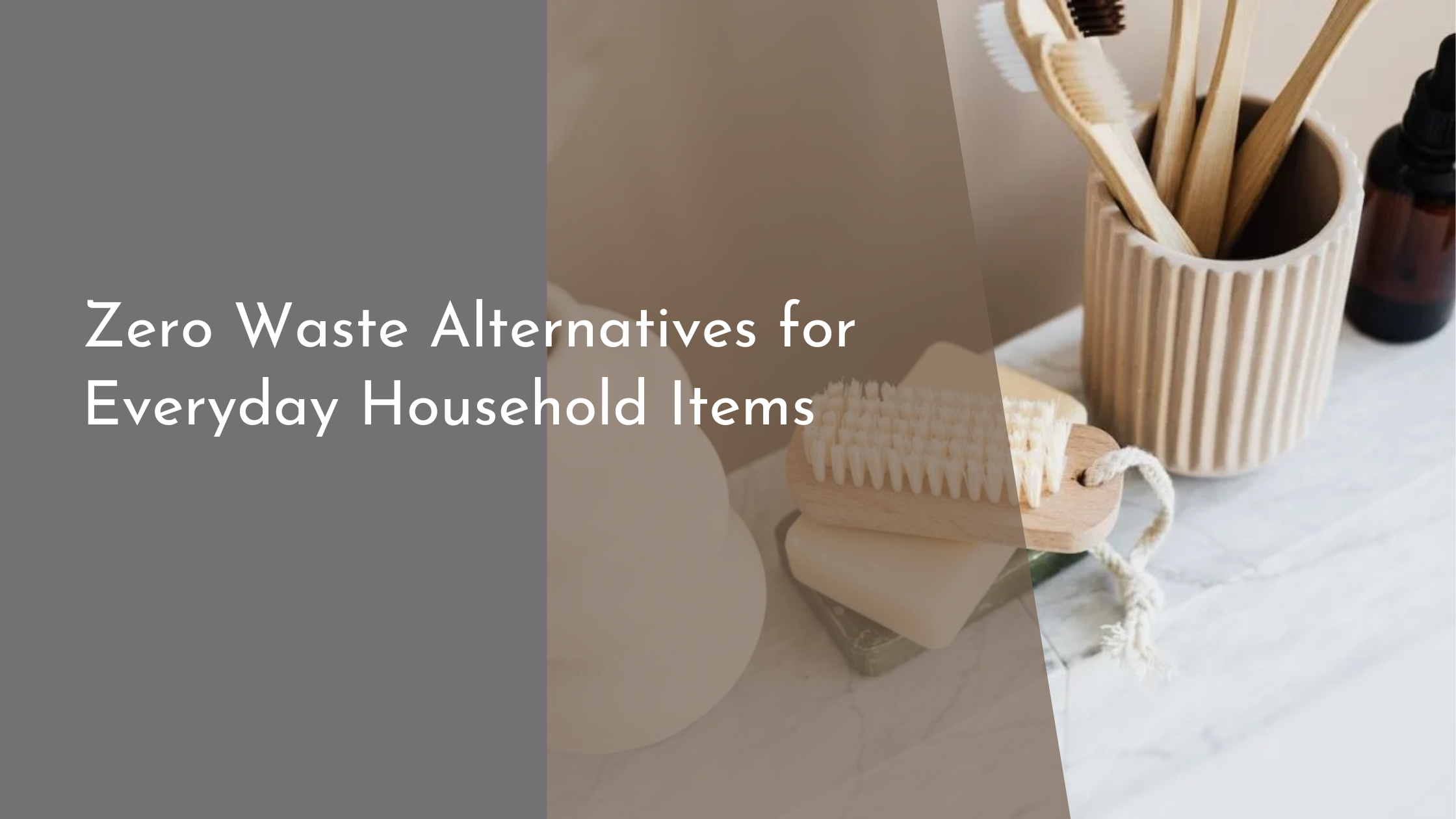Zero Waste Alternatives for Everyday Household Items
In our modern world, the pursuit of sustainability has become more than just a trend; it’s a necessary lifestyle change for the preservation of our planet. Zero waste living inspires us to rethink our everyday habits and embrace a more sustainable approach in every facet of our lives. By making small, conscious adjustments in our daily routines, we can significantly reduce our environmental footprint. Here, we’ll explore some zero waste alternatives for everyday household items that can help you contribute to a healthier planet while enjoying the benefits of a clutter-free and eco-friendly lifestyle.
Embrace Reusable Bags and Containers
The ubiquitous plastic bag and container have long been staples in households worldwide, but their environmental impact is quite severe. A simple yet effective alternative is to embrace reusable bags and containers. Tote bags made of sturdy materials like cotton or hemp can replace plastic grocery bags, and they are often more durable and fashionable, adding a personal touch to your shopping experience. Glass or stainless steel containers can replace single-use plastic storage, offering a healthier option for storing food without the risk of chemical leaching.
Switching to reusable options not only reduces waste but also simplifies your living space. Imagine a pantry free of mismatched plastic lids and containers—replaced instead by neatly stacked, uniform glass jars, and containers. This organizational shift not only looks pleasing but also promotes a more mindful approach to consumption and storage. Plus, many companies now offer collapsible, reusable containers and bags to make zero waste living more convenient for those on the go.
Switch to Eco-Friendly Cleaning Products
Cleaning products are notorious for their harsh chemicals and excessive packaging. Thankfully, there are numerous eco-friendly alternatives available that are just as effective without the negative environmental impact. Brands are increasingly offering cleaning concentrates in biodegradable packaging, which can be diluted with water at home, thus minimizing waste. Additionally, natural ingredients like vinegar, baking soda, and lemon can be used for various cleaning tasks around the house, offering a chemical-free way to keep your home fresh and clean.
The move towards eco-friendly cleaning also extends to the tools used. Consider swapping out synthetic sponges for biodegradable options or using washable microfiber cloths instead of paper towels. These changes not only help reduce waste but also foster a healthier home environment by minimizing exposure to toxins and allergens. Moreover, making your eco-friendly cleaning solutions can be a fun and rewarding process that gets the whole family involved in sustainable living.
Opt for Sustainable Personal Care Items
The bathroom is another area ripe for sustainable swaps. Traditional personal care items often come in plastic packaging that contributes to landfill waste. To combat this, consider opting for solid shampoo and conditioner bars, which eliminate the need for plastic bottles. These bars are typically made of natural ingredients and are often more concentrated, meaning they last longer than their liquid counterparts, adding to their eco-friendly appeal.
Moreover, look into reusable alternatives for items like razors and toothbrushes. Stainless steel safety razors provide a waste-free shaving option, while bamboo toothbrushes offer a compostable alternative to plastic. Even makeup lovers can get in on the zero waste game with reusable makeup remover pads and biodegradable cosmetic options. These small changes in your personal care routine can collectively have a significant impact on the environment.
Choose Compostable Kitchen and Bath Supplies
In the kitchen and bathroom, the use of compostable supplies is a practical step toward a zero waste lifestyle. Compostable sponges and dishcloths can easily replace synthetic ones, and they decompose naturally after their lifespan. Similarly, compostable garbage bags offer a sustainable alternative to traditional plastic bags, breaking down more quickly and reducing landfill burden.
In addition, bath supplies such as toilet paper made from recycled materials and bamboo bath towels can greatly reduce your household’s carbon footprint. These products not only reduce waste but also often come from companies that emphasize sustainable practices throughout their supply chain. By choosing compostable and biodegradable options, you can maintain a clean and functional home while contributing positively to the environment.
Adopting zero waste alternatives for everyday household items is more than a simple change—it’s a commitment to a more sustainable and conscientious way of living. These small adjustments can lead to big changes, reducing both personal and communal waste while fostering a healthier planet. As more people make these eco-friendly transitions, the cumulative effect can be profound, creating a ripple of positive environmental change. So, embrace these alternatives and join the movement towards a zero waste lifestyle—your planet will thank you!

